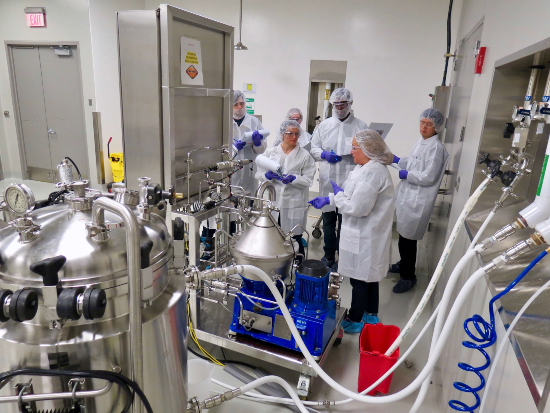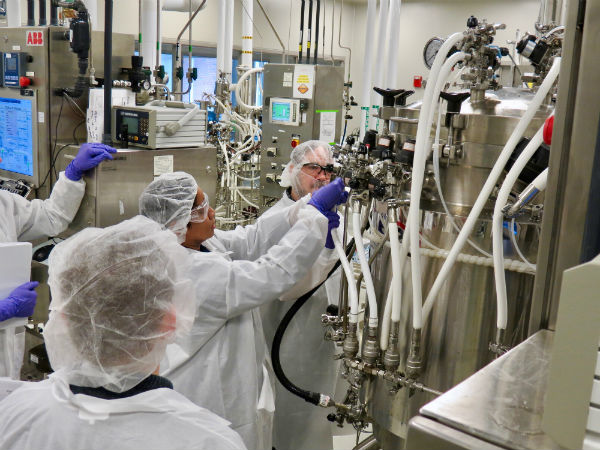
Top 5 Reasons to Pivot Into a Biomanufacturing Career

Searching for a new career? North Carolina’s biopharma manufacturing sector has a job for you.
As the state’s life sciences foundation continues to grow, it is creating thousands of jobs. Many require only a limited science background, which you can earn at your local community college.
A career in biomanufacturing has many benefits including a high average starting salary, minimal training requirements, advancement opportunities, job security and lasting social impact.
1. Competitive Salary
The average salary in the biopharma manufacturing sector is $97,575 – more than twice that of the state’s overall private sector salary. Entry-level positions start at nearly $50,000 per year. The average entry-level biopharma manufacturing salary ranges from $45,000 to $60,000, depending on training. Below is a snapshot of these salaries:
- Apprenticeship – Salary range: $23K to $46K.
- BioWork certificate – Starting salary: $48K to 50K
- Associate degree – Salary range: $26k TO 63k
2. Minimal Training Requirements
Many biopharma manufacturing companies across North Carolina are hiring for roles that require no science background and minimal training. Biopharma certificate programs prepare students for entry-level positions such as process technician, process engineer and quality assurance specialist.
If you are new to the field, a great starting point is BioWork, a 10- to 12-week certificate program offered at several of North Carolina’s community colleges.
“A lot of the companies require the BioWork certificate to ensure the applicant has some knowledge of what the companies want, including an understanding of the basic foundations of manufacturing,” said Amanda Maynard, Johnston County Community College’s biotechnology coordinator.
The BioWork certificate program is just the beginning. Other certificate programs provide opportunities for career advancement.
Learn more here about training and certification programs available near you.
3. Advancement Opportunities
An entry-level position at one of North Carolina’s 80 biomanufacturing facilities can be just the beginning for employees who want to grow their skills and earning potential. At community colleges and universities across the state, students can earn certifications in clinical research, biomanufacturing science and biomanufacturing training.

However, certifications are just the beginning.
“The manufacturing and pharmaceutical industry is misunderstood. There are various jobs from validation to quality,” said JCC’s Maynard. “There are so many opportunities for students.”
Students earning qualifying associate degrees at North Carolina community colleges are also eligible for East Carolina University’s 2 X 2 program, which allows a graduate of an approved Associate of Applied Science program to transfer in. From here, the student’s general education courses and technology degree are applied toward the completion of ECU’s Bachelor of Science in Industrial Technology.
Learn more here about certification and degree opportunities near you.
4. Job Security
More than 30,000 North Carolinians are employed in the biomanufacturing field. This number will continue to grow as companies invest more than $2.3 billion in our state and create more than 5,000 new jobs in biopharma manufacturing over the next several years.
Ongoing training programs, including the NC BioNetwork training initiative, NCBioImpact and public/private partnerships, ensure employees will receive ongoing training to meet evolving manufacturing requirements.
5. Social Impact
As an employee in biomanufacturing you can play an important role in producing safe and effective vaccines, medicines, diagnostics, and treatments that address some of the world’s most pressing medical issues. Biopharma companies across North Carolina manufacture major vaccines and therapies for diabetes, HPV, influenza, COVID-19 and Ebola, among others.
Kickstart your career in biomanufacturing today.
